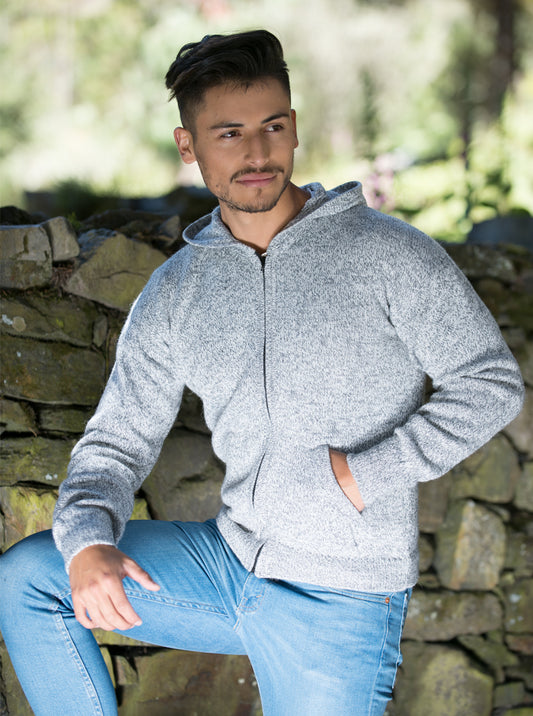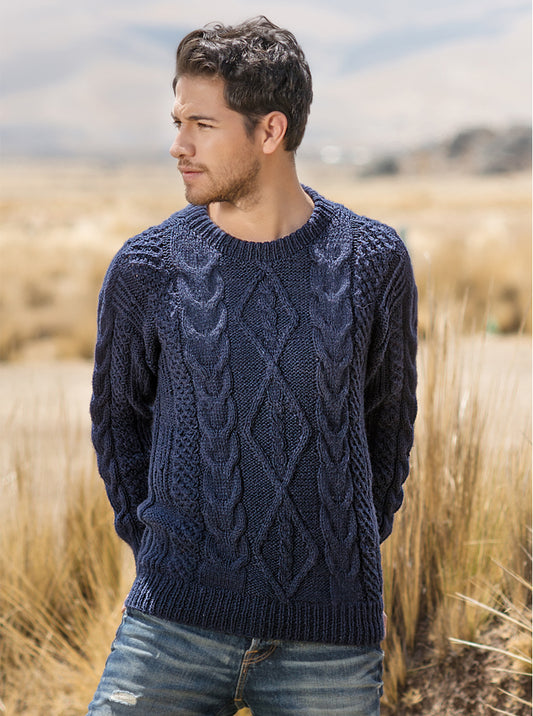Handspun Alpaca Fiber in Bolivia
The fiber obtained from shearing the Alpacas is converted into yarn adequate for making different garments, blankets and accessories among other things. The men and women dedicated to raising the alpacas are also in charge of the spinning process.
The handspun yarn which comes from the Calientes, Antaquilla and Ucha Ucha communities in Bolivia, is made exclusively by women through different manual processes. This is a complementary activity to grazing; which means that selling the yarns directly affects the economic and social empowerment of the women in these communities.
The Alpaca Producers Organization in Bolivia develops the entire alpaca fiber and wool processing chain. This allows them to improve the living standard of these families significantly.
This initiative to bring together different organizations (fiber producers, handspun yarn, industrial yarn and clothing production associations) is an innovative form of fair trade because each member is adequately paid and the production costs are taken into account, thus becoming a management and development model for this sector.
The high quality of this yarn, made with alpaca fiber with natural colors, is the result of a process which combines improving technology through the use of a collective carding machine that indicates the color of the fiber, using improved distaffs (electric and manual spinning machines for alpaca wool) that help with thickness uniformity and increasing the volume of the product.
Natural Colors of the Handspun Yarn: Black Marengo; Medium Gray; Dark coffee; Coffee; Vicuña; Beige and White.
Below we describe the different stages of production of the handmade yarn, from shearing to manufacturing:
Shearing
From October to December, the artisans of Bolivia shear the alpacas and the fiber obtained is placed on a tarp to prevent it from getting dirty or contaminated. Scissors are used to cut the fiber completely in order to avoid wasting any of the fiber.
Dehairing
In some cases, the alpaca fiber is very thick and a dehairing process is necessary. During this process these thick fibers are separated and the fine ones are left. Given that this is a thorough job, it is carried out manually by experts and it takes a day to dehair 1 kilo of alpaca.
Classification
Once the fiber is dehaired, the artisans proceed with the selection of the alpaca fiber taking into account the fineness and the color tones. Each classified fiber has six color tones and the same grade of softness. This process of separating the fibers according to quality and tonality is done by hand; the only tool used is the touch of the craftsman.
Handspinning
Once the alpaca fiber is selected, the artisans carry out the fiber spinning using spinning wheels. These wheels can be manual or electric. When using manual spinning wheels, the artisan needs about five days to make 1 kilo of alpaca fiber yarn. When using an electric wheel, it will take just one day for the same amount.
Winding
After obtaining the handmade alpaca fiber yarn, the next step is winding it. The balls weigh between 100 and 200 grams, which allows making clothes without using other pieces of thread.
Source: Agronomists and Veterinarians Without Borders Bolivia (AVSFeatured Products
-
Chaqueta Abrigada de Alpaca Gris y Blanca Chacaltaya
Precio habitual R$ 373,00 BRLPrecio habitualPrecio unitario / por
 Agotado
Agotado -
 Agotado
AgotadoSuéter tejido a mano
Precio habitual A partir de R$ 259,00 BRLPrecio habitualPrecio unitario / porR$ 517,00 BRLPrecio de oferta A partir de R$ 259,00 BRL
 Agotado
Agotado -
Suéter de alpaca gris con bolsillos
Precio habitual R$ 247,00 BRLPrecio habitualPrecio unitario / porR$ 517,00 BRLPrecio de oferta R$ 247,00 BRL
 Agotado
Agotado -
Suéter de Alpaca Azul para Hombre
Precio habitual R$ 259,00 BRLPrecio habitualPrecio unitario / porR$ 488,00 BRLPrecio de oferta R$ 259,00 BRL
 Agotado
Agotado -
 Agotado
AgotadoSuéter Plomo de Alpaca
Precio habitual R$ 460,00 BRLPrecio habitualPrecio unitario / por
 Agotado
Agotado





